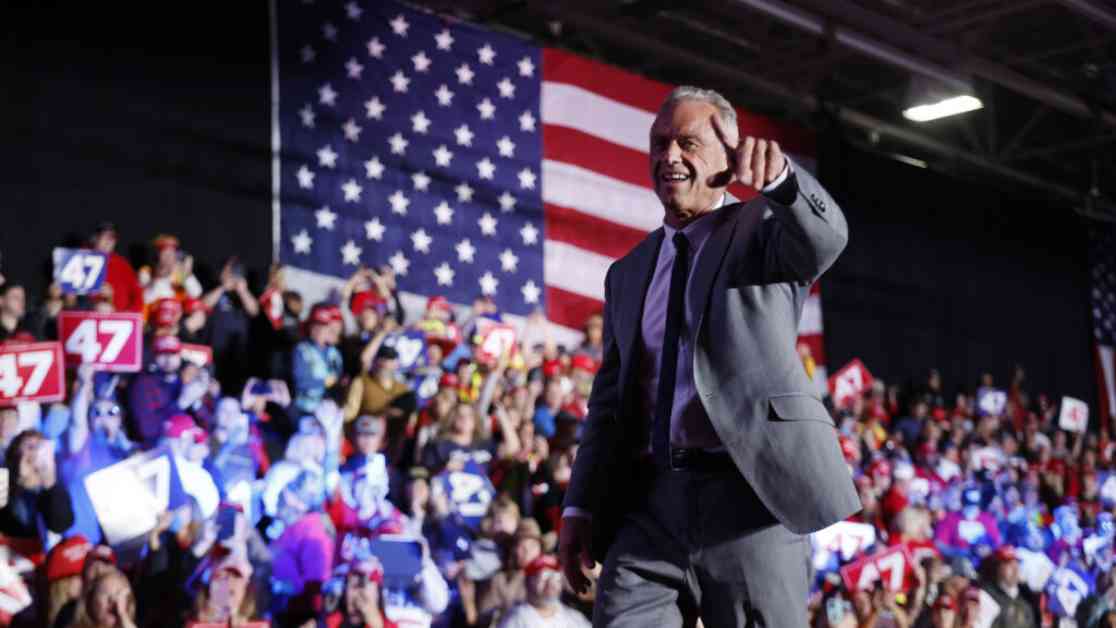Robert F. Kennedy Jr., a well-known critic of the pharmaceutical industry, has been considered for the position of Health Secretary. He has been vocal about his views on how the industry has influenced U.S. health agencies, often criticizing products like vaccines and obesity medications. When President-elect Trump announced that RFK Jr. was his pick for the role, the stock prices of pharmaceutical companies took a hit.
Despite the concerns raised by RFK Jr.’s potential appointment, pharmaceutical executives at an investor conference seemed unfazed. David Elkins, the chief financial officer of Bristol Myers Squibb, mentioned that regardless of the administration in power, there has always been a focus on healthcare. He highlighted that the industry has navigated through different healthcare policies in the past, indicating that it would be business as usual.
It is evident that RFK Jr.’s stance on the pharmaceutical industry has caused some unease among industry players. However, his appointment could also signal a shift towards more transparency and accountability within the healthcare system. This could lead to reforms that prioritize public health and safety over corporate interests.
The pharmaceutical industry plays a significant role in shaping healthcare policies and practices. With someone like RFK Jr., who is known for his strong advocacy for health and environmental issues, at the helm of the Health and Human Services Department, there could be potential changes in how the industry operates. This could mean tighter regulations, increased scrutiny on drug pricing, and a greater emphasis on evidence-based medicine.
Overall, the consideration of Robert F. Kennedy Jr. for the position of Health Secretary has sparked conversations about the relationship between the pharmaceutical industry and government agencies. It remains to be seen how his appointment, if confirmed, will impact the healthcare landscape in the United States.


















